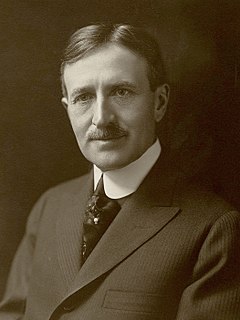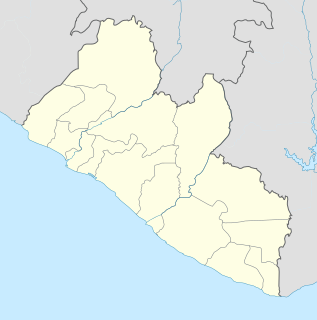
Liberia is a country in West Africa which was founded by free people of color from the United States. The emigration of free people of color, and later former slaves, was funded and organized by the American Colonization Society (ACS). The mortality rate of these settlers was the highest in accurately recorded human history. Of the 4,571 emigrants who arrived in Liberia between 1820 and 1843, only 1,819 survived. In 1847, the ACS encouraged Liberia to declare independence, as the organization could no longer support the colony against territorial incursions by the neighboring British and French. The ACS as well as several northern state governments and local colonization chapters continued to provide money and emigrants as late as the 1870s. The United States declined to act on requests from the ACS to make Liberia an American colony or to establish a formal protectorate over Liberia, but it did exercise a "moral protectorate" over Liberia, intervening when European powers threatened its territory or sovereignty. As a result, eleven signatories established the Republic of Liberia on July 26, 1847, eventually electing the Virginia-born Joseph Jenkins Roberts as the nation's first president.
The economy of Liberia is extremely underdeveloped, largely due to the First Liberian Civil War from 1989–96. Liberia itself is one of the poorest and least developed countries in the world.

Harvey Samuel Firestone was an American businessman, and the founder of the Firestone Tire and Rubber Company, one of the first global makers of automobile tires.

Bridgestone Corporation is a Japanese multinational auto and truck parts manufacturer founded in 1931 by Shojiro Ishibashi in the city of Kurume, Fukuoka, Japan. The name Bridgestone comes from a calque translation and transposition of ishibashi, meaning "stone bridge" in Japanese.
Firestone Tire and Rubber Company is an American tire company founded by Harvey Firestone in 1900 initially to supply solid rubber side-wire tires for fire apparatus, and later, pneumatic tires for wagons, buggies, and other forms of wheeled transportation common in the era. Firestone soon saw the huge potential for marketing tires for automobiles, and the company was a pioneer in the mass production of tires. Harvey Firestone had a personal friendship with Henry Ford, and used this to become the original equipment supplier of Ford Motor Company automobiles, and was also active in the replacement market.

Charles Dunbar Burgess King was a politician in Liberia of Americo-Liberian and Freetown Creole descent. He was a member of the True Whig Party, which ruled the country from 1878 until 1980. He served as the 17th President of Liberia from 1920 until 1930.

Edwin James Barclay was a Liberian politician. A member of the True Whig political party, which dominated the political governance of the country for decades, Barclay served as the 18th President of the country from 1930 until 1944. Under his leadership, Liberia was an ally of the United States during World War II.
The Firestone and Ford tire controversy was a period of unusually high failures of P235/75R15 ATX, ATX II, and Wilderness AT Firestone tires installed on the Ford Explorer and other related vehicles.

Harbel is a town in Margibi County, Liberia. It lies along the Farmington River, about 15 miles upstream from the Atlantic Ocean. It was named for the founder of The Firestone Tire & Rubber Company, Harvey S. Firestone, and his wife, Idabelle. Since 1926, Harbel has been home to a massive natural rubber plantation which is still operated by the Firestone subsidiary of Bridgestone.
The Stevenson Plan, also known as the Stevenson Restriction Scheme, was an effort by the British government to stabilize low rubber prices resulting from a glut of rubber following World War I.
The International Rubber Regulation Agreement was a 1934 accord between the United Kingdom, India, the Netherlands, France and Thailand that formed a cartel of major rubber producing nations to restrict global rubber production and maintain a stable, high price for natural rubber. In 1979 a new agreement was formed - an International Natural Rubber Agreement.
Allen N. Yancy (1881–1941) was Vice President of Liberia from 1928 to 1930 under President Charles D.B. King. He was forced to resign in 1930 following his involvement with forced labor exported to the Spanish-controlled island of Fernando Po.

The International Labor Rights Forum (ILRF) is a nonprofit advocacy organization headquartered in Washington, D.C., U.S., that describes itself as "an advocate for and with the working poor around the world." ILRF, formerly the "International Labor Rights Education & Research Fund," was founded in 1986, and the organization's mission statement reads: "ILRF believes that all workers have the right to a safe working environment where they are treated with dignity and respect, and where they can organize freely to defend and promote their rights and interests. ILRF works to develop practical and effective tools to assist workers in winning enforcement of protections for their basic rights, and hold labor rights violators accountable."
Harvey Samuel Firestone Jr. was an American businessman. He was chairman of the board of the Firestone Tire and Rubber Company.
Time, Inc. v. Firestone, 424 U.S. 448 (1976), was a U.S. Supreme Court case concerning defamation suits against public figures.
A new civil war began in 1999 when a rebel group backed by the government of neighboring Guinea, the Liberians United for Reconciliation and Democracy (LURD), emerged in northern Liberia. By the spring of 2001, they were posing a major threat to the Taylor government. Liberia was now engaged in a complex three-way conflict with Sierra Leone and the Guinea Republic. By the beginning of 2002, both of these countries were supporting the latest addition to the lexicon of Liberian guerrilla outfits – Liberians United for Reconciliation and Democracy (LURD), while Taylor was supporting various opposition factions in both countries. By supporting Sierra Leonean rebels, Taylor also drew the enmity of the British and Americans.
Duside Hospital is a hospital in Firestone District, Margibi County, Liberia. It holds 300 beds and is operated by the Firestone Tire and Rubber Company. It reopened in December 2008 and in January 2010, was considered one of the best hospitals in Liberia.
Firestone Natural Rubber Company, LLC is a subsidiary of the Bridgestone Americas, Inc. Headquartered in Nashville, TN, the company operates the largest contiguous rubber plantation in the world in Liberia, which first opened in 1926.

Liberia did not become militarily involved in World War II until January 1944, with the election of William Tubman, at which time the country declared war on Germany and Japan. However, even before the start of Liberia's official military involvement, the nation participated in the war for two years under the terms of a Defense Agreement with the United States. Apart from Ceylon and the Belgian Congo, Liberia possessed one of the few remaining sources of rubber for the Allies. To guarantee a steady supply of rubber from the world's largest rubber plantation, operated at Harbel by the Firestone Company since 1926, the US government built roads throughout the country, created an international airport, and transformed the capital, Monrovia, by building a deep water port.







